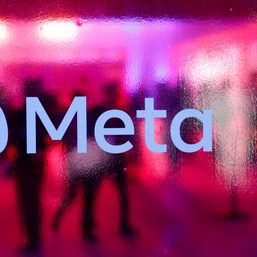SUMMARY
This is AI generated summarization, which may have errors. For context, always refer to the full article.

Google at its I/O event last May 10 provided the tantalizing promise of a world wherein searching for answers to difficult, abstract questions can be more complex and yet easier to do.
It debuted its Search Generative Experience (SGE) for people by allowing the Google search engine to do a lot of the work required for answering the complex query, “What’s better for a family with kids under 3 and a dog, Bryce Canyon or Arches.”
It came back with a detailed response that tried to answer the question in its totality, rather than letting the human do the work of sifting through information to get to an acceptable answer.

This “AI Snapshot” as its called, summarizes the information it’s indexed to help get at an acceptable answer for the person asking the question.
While Google poses this as being beneficial for people, the company doesn’t quite explain what’s at stake in terms of harms caused by such a product.
I believe it’s a harmful disruption to the way journalism and knowledge-seeking works, leaving publishers and websites filled with the actual information people can use untapped amid Google’s search for profit.
Regurgitation
To recap, Google’s SGE is scouring the internet for information on websites related to one’s query, and then indexing and summarizing the results using its Large Language Models.
Essentially, this means its regurgitating information that’s already available online, changing how search works by keeping one’s attention on the search engine’s AI output, instead of initially listing websites that would help a person make their own decision.
While this can potentially help the person doing the searching – remember that generative AI doesn’t really “know” if its correct, and only vomits what appears to be informative words strung together that can actually be disinformation – this does nothing to compensate the websites that have done the hard work of getting news and helpful data out to the public.
An even more unwelcome change to search behavior
According to 2019 research material from the Nielsen Norman Group, the behavior of people using search engines has already markedly changed from the early days of search, as those websites with the proper search engine optimization (SEO) normally get attention, and most searchers don’t even check beyond page one of a search query.
Once SGE is perfected and becomes more commonplace, it stands to reason you can expect readership on informational websites to further lessen as search engines gobble up the hard work of millions of writers on a myriad of subjects – my own work included – without any compensation, much less fleeting acknowledgement on a sidebar.
Speaking with Futurism, Google had little in response to the question of compensation to publishers for AI-regurgitated content. “We don’t have plans to share on this, but we’ll continue to work with the broader ecosystem,” the Google spokesperson said.
Support human work
As you can expect, that doesn’t quite track well with writers in general.
A lack of compensation can spell the end of an era for digital publishing, and a lack of credit can be disheartening for many people trying to actually get their start as a budding writer earnestly discussing information about their hobbies or interests.
Search was bad enough when algorithms changed the landscape to force people to focus on SEO over quality, informative writing. This new experience, left uncontrolled, may bring about something worse.
You see, if people aren’t enthused about writing anymore, and no one’s left writing about anything, what do you expect will Google’s generative search to be regurgitating information from?
This leads to the possibility that, without any guardrails in place to properly credit and compensate writers and publishers, the search generative experience will eventually stagnate, or even cannibalize itself out of new information on a broader range of topics.
In the end, an uninhibited AI-enabled search experience that does not support the writers it gobbles up information from will spit out disaster for a knowledge-seeking public. – Rappler.com
Add a comment
How does this make you feel?





There are no comments yet. Add your comment to start the conversation.